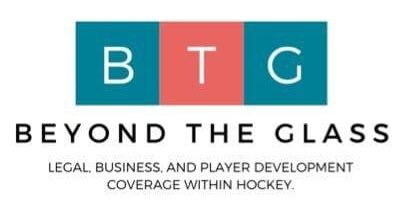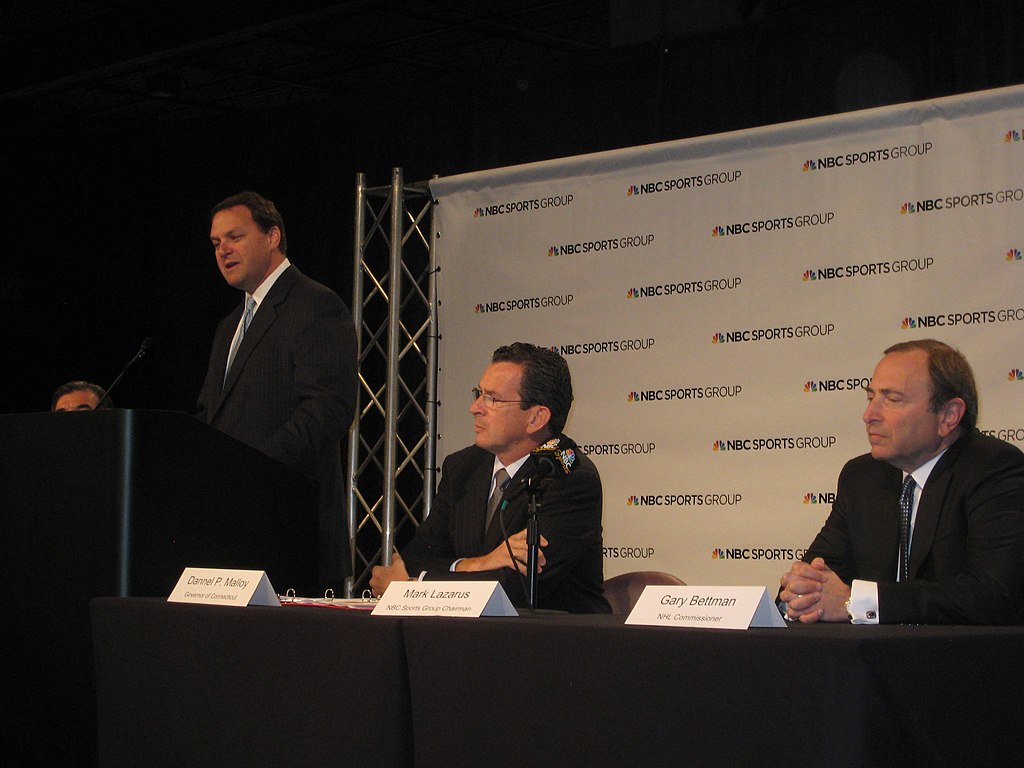By Alec Roberson
Now that we have analyzed the money and structure of an NHL team purchase, it’s time to look at closing the transaction from a legal perspective and who may be involved in these types of transactions. Part I focused on preliminary aspects of this transaction. In Part II we are mostly looking at the part of the process after the potential buyer and the seller have entered into a purchase agreement.
This is Part II in our three-part series on buying an NHL team. We have taken a look at the possibility of Ryan Reynolds buying the Ottawa Senators as a backdrop for this series since he may legitimately have interest. If you have not had a chance to read Part I, or would like a refresher, check out that article here.
With that said, let’s jump into Part II.
Initial Considerations to Close
If you have ever purchased and/or sold a house, you know that there are typically multiple parties involved. If you pay all cash, maybe less parties. Typically, you use an agent, a closing attorney, a bank or some other form of lender, a title insurance company, an inspector, an appraiser, and possibly an accountant and surveyor. And why there are so many people involved is due to the checklist of items that need to be completed to close the sale.
If you leave residential real estate and move over to commercial, you usually multiply that complexity. And this is for transactions that happen every day. Now imagine that complexity applied to a roughly 500 million dollar sale of a professional sports team that happens only a few times a decade. Yeah, it’s a lot.
Due Diligence
As a prospective purchaser, you want to do your due diligence. Look through the current lease agreements, sponsorship deals, the team’s debts and financial statements etc. etc. What if you are the CEO of Pepsi but the team’s current deal is with Coke? Maybe it doesn’t matter in this example but any potential conflicts of interest would have to be considered.
Maybe there are certain outstanding tax liens, lawsuits or other liabilities/obligations involving the team. As a buyer you want to know about all of these and what you may be walking into. Or does it end when the team changes ownership? You want to know.
When it comes to lease agreements, what if the prospective purchaser wants to develop a new arena? Or maybe even relocate the team? This happened when Jim Balsillie was interested in purchasing the Nashville Predators in 2007. He wanted to move the team to Hamilton, Ontario and submitted a request to do so. This is the same Balsillie that was trying to do this with the Phoenix Coyotes.
For the Nashville deal, there was a lease agreement in place that extended multiple years. One piece to the puzzle of accomplishing the purchase and relocation was the condition that the lease agreement in Nashville had to be terminated. Of course, the buyer can try to negotiate that after the fact or wait for it to expire. But you are talking major money and assets moving here. If you are in a place to purchase a team and want to move it, you probably want the least amount of hurdles possible up front.
Helping Hands
Obviously, the purchaser is not the one doing all of this. As mentioned above, multiple professionals are hired to assist in this process. And frankly, it’s such a big purchase there really has to be.
1. Advisors
There are various forms of advisors that help with transactions of this magnitude. The Melynk family for example hired Galatioto Sports Partners to assist and advise with the selling of the Senators. This group acts like a real estate agent, but on steroids. What I mean is that they work hand in hand with the seller to yes, find a buyer and bring the deal to a close, but also to create and foster real competition amongst buyers to drive up price and keep the buyers engaged.
As far as ensuring the deal reaches a close, an advisor can anticipate issues before they arise. They work to ensure those issues are handled as soon as possible. The advisor can also arrange for the use of other necessary professionals. What could these issues be? Anything we have mentioned in these articles including due diligence, negotiations, governance or financing issues. Having an advisor that is focused on and has experience in these types of transactions can be very helpful.
2. Attorneys
While an advisor can work as an agent overseeing the entire process, there are other players with more specific tasks. The buyer and the seller both have attorneys involved representing their interests. Not only do the attorneys negotiate and review the purchase agreement, they also handle the preparation and review of certain documents required to close. Preparing the deeds, various affidavits, possibly corporate resolutions, allocating taxes due and preparing ancillary agreements or amendments are some of the responsibilities of the attorneys.
What if there is some outstanding lien on the team or what if a decade ago a past owner didn’t properly convey their interest in the team? It’s the attorneys’ (and the title insurance company’s) job to make sure these are first found and second fixed so that the transaction can move forward effectively. If there is more creative financing involved attorneys may have to assist with that as well.
3. Accountants
In addition to attorneys there are accountants and tax advisors involved. There is so much money and such highly valued assets are moving hands here that you know the IRS and state/local governments want their share too. Well there are ways to alleviate some of these tax burdens but it has to be done carefully. Transactions of this magnitude need experienced professionals with that knowledge involved.
4. Title Insurance Company
Any buyer in such a transaction will want some form of title insurance to make sure they are insured with a good, clean title to the team. Therefore, a title insurance company has to be involved. The title insurance company may also perform additional services like escrowing money and serving as a third party intermediary if the seller is trying to do certain tax maneuvers like a 1031 exchange (if even possible).
5. Lenders
Lastly, when financing is involved there has to be some sort of lender that the buyer is working with. Whether it is a specific loan officer or bank department, there are tons of requirements the lender will need to see to underwrite the loan for such a purpose. This likely involves the lender working hand in hand with the attorney and the advisor/agent. The lender really needs to know what they are doing to help facilitate the financing of such a huge transaction like this. And just like the buyer will do their due diligence on the purchase, the lender will do their due diligence on the potential loan.
Keep in mind it’s also possible that no debt is involved and various partners with deep pockets provide all of the financing. In that case there would not be a lender, but there would be multiple owners with funds invested.
The point here is not so much to explain what everyone involved exactly does specifically, but to show that this is not something that can just be easily completed. It takes a whole three ring circus.
Seller and Buyer Documents to Close
So the buyer and seller have signed the purchase agreement and set a closing date. What documents need to be presented for the transaction to close?
If an entity is the one buying the team, all of the corporate documentation will need to be squared away and presented at closing. Making sure all taxes are paid, records are up to date, state filings are timely, the signer or signers actually have the authority to do so, etc. is essential for any commercial transaction.
There can be other affidavits the seller and buyer have to provide to make representations related to the transaction. Think like a document that there are no other liens on the subject property except those disclosed or that there are no undisclosed lease agreements.
A lot depends on both local and federal law as well as what the purchase agreement provides. Again, this is the job for the attorneys to make sure laws are adhered to and that everything in the purchase agreement is followed. This includes providing documentation, meeting timelines, and correct financing. There could be required notices or other communications involved. And if the parties decide to amend the purchase agreement, someone has to keep everything organized. It is not uncommon to have multiple amendments that may alter timelines, payments or other aspects of the purchase agreement. It can get really complicated so I don’t want to go too far down Alice’s rabbit hole but I think you get the point.
The Government’s Involvement
In addition to those challenges mentioned above, government entities have a say in these deals as well.
As I stated above, obviously the IRS wants their share of the money changing hands. So do state and local governments. There are creative ways to get around some tax implications but I won’t bore you with a tax lesson.
Licensing and zoning requirements have to be squared away with local governments. There could also be right of ways or easements granted to the city or utility companies.
In addition, the Federal Trade Commission (FTC) and/or the Department of Justice (DOJ) reviews all purchases of this size and have the authority to block them if they believe they “substantially lessen competition” from an antitrust perspective. So the buyer has to obtain approval from these agencies and show that to the seller before the transaction can close.
The Balance of Power in the Negotiations
When it comes to negotiating, the balance of power in these deals seems really interesting too. There are only 32 teams in the NHL and it is not often that one is up for sale. So the supply is extremely limited. But so is the demand. Not only is the prospective pool of people financially able to buy a team small, most teams are not actually very profitable. So, from an investment standpoint, many will pass. It’s a unique dynamic and the process is very complex.
Conclusion
Much like Part I, you can see how these deals are so complex. This article does not cover every single aspect of closing a transaction to purchase an NHL team but does show a lot of the aspects involved. Once the money is right, you still have to actually square away all of the loose ends to close the deal. And as a prospective buyer you want to make sure you are setting yourself up for success as much as possible. Or, at the very least, having no unexpected issues after becoming the lucky new owner. This is why these processes typically take a fair amount of time. It is also why due diligence and having a solid team of professionals is so essential.
So, after the economic, logistical, and legal considerations, what part does the NHL as a league play in these transactions? And how could it possibly “assist” Reynolds in his pursuit if they feel it is worth doing so to promote the league? In a nutshell, NHL approval is one of the conditions to close the transaction. But what does that look like? Stay tuned as we dive into Part III next to focus on the NHL league rules and requirements for selling and buying a team. This is really what sets these transactions apart from other major sales and purchases.




